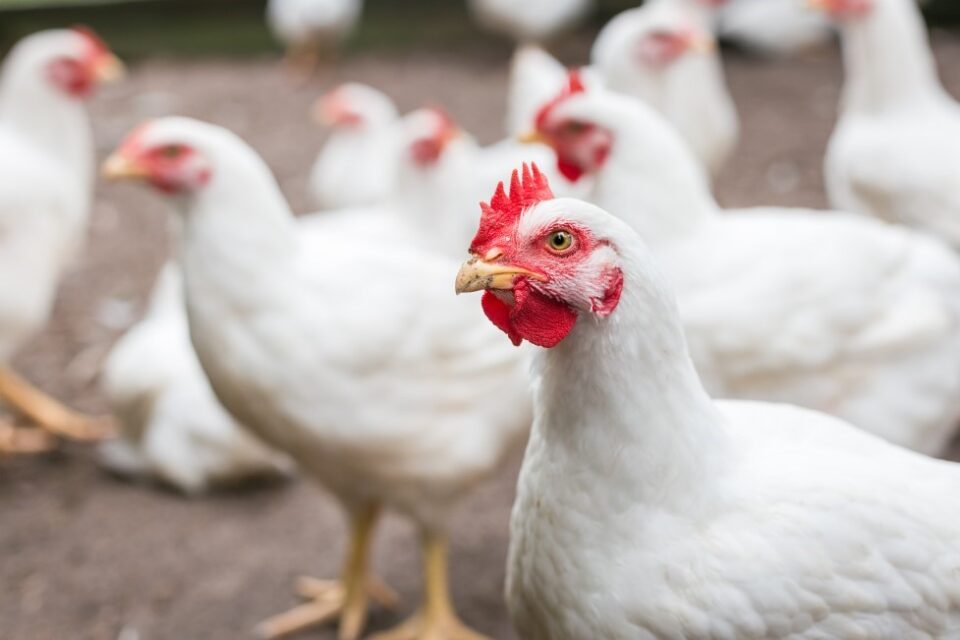It’s common knowledge that the biggest challenge in Nigeria now is hyperinflation. Food and price inflation has driven hundreds of businesses out of existence with its attendant excruciating poverty that has bedevilled a larger percentage of homes in the country.
Prohibitive raw material and production costs have snuffed life out of scores of manufacturing companies in the last one and a half years in the country. The unemployment rate has gone all-time high with the labour market experiencing an explosion of the worst kind.
This pathetic situation is even worse in the agriculture sector with the unfavourable weather, allegedly occasioned by climate change, colluding with inflation to kill many farming businesses be it crop or animal husbandry.
Particularly hit is the hitherto thriving poultry business in Nigeria. From the middle of 2023 till early 2024, a larger population of chickens in Nigerian poultries became stunted in growth and their eggs were uncharacteristically small in size. The majority of poultries also experienced a high mortality rate during the period, resulting in huge revenue losses for the farmers. The unpalatable development was said to be a result of the extremely hot weather at the time. This compounded the already bad situation of high costs of raw materials and feeds farmers across the country were grabbling with.
Recently, poultry farmers in Oyo State, Southwest of Nigeria under the aegis of the Poultry Association of Nigeria (PAN), Oyo State chapter revealed that half of the population of poultry farmers in the state were already out of business.
The association’s chairman, Mr Omidokun Oyekunle, identified the high cost of poultry feeds, especially maize and soya beans, both of which are major ingredients of poultry feeds, as a daunting challenge confronting farmers.
“This is a major problem confronting us, especially when you look at the production cost and the amount we sell eggs.
“You will find out that there is not enough profit margin to keep the business running and that is why poultry farmers are closing down and the cost of eggs increasing,” Oyekunle told the News Agency of Nigeria (NAN).
From available data, the prevailing situation in Oyo State is symbolic of the experience of farmers in other parts of the country. It’s worse in the North with the unfortunate activities of terrorists and bandits which have exacerbated the high cost of living and poverty in the region.
For farmers who are still in business, therefore, how do you save your poultry from crumbling under the current realities in the country?
First, you need to embark on backward integration where you locally produce feeds to be mixed with packaged ones to reduce cost. You can even have a farm where some of the crops you need to produce their feeds could be raised.
Second, seek to access the regularly advertised federal and state governments’ grants and soft loans for farmers in the country. Liaise with your association’s executives to establish communication lines with the relevant ministries at the state and federal levels to get these benefits to members if that has not been done. There are such programmes routed through the Bank of Industry (BOI); the Nigerian Consumer Credit Corporation (NCCC) via the Ministry of Finance Incorporated (MOFI), and so on. Government at all levels also need to step up on such empowerment programmes. Farming, which right now appears the most viable option to lift Nigerians from the pit of poverty and hunger, needs such aid more than ever before.
Third, ensure you prioritise regular checks on the birds by veterinary doctors so any potential health threats such as flu can be discovered and attended to on time.
Fourth, ensure an efficient feeding process that would always prevent waste. In many poultries, wrong application of feeds, inappropriately constructed coop and the use of wrong containers for feeding lead to food wastage. No farm can afford waste in any form now.
Fifth, prioritise customer experience. You do this by ensuring that you go for good breeds of chicks and high-quality feeds that will make them grow well and big. The improvised feeds you have mixed with it will eventually reduce its cost. Then, establish good relations with your partners, i.e workers, transporters and customers. Communicate with your customers regularly, get feedback from them and carry them along on happenings, especially price changes. You will be amazed at their loyalty to your enterprise and even they will voluntarily play an agent role for you by convincing, on your behalf, the final consumers and retailers alike to stick to your products.
Sixth is accounting. Keep a proper record of your finances and ensure a professionally drawn budget that conforms with current realities. Ensure you operate to the budget. Budgeting guides against deviation and reckless spending. It will enable you to know early enough whether you are heading for profit or loss so you can appropriately adjust.
Finally, cut costs. Any unnecessary cost should be done away with. That’s the way to go during tough times. You also need to reduce any associated costs that could be reduced through alternative means. For instance, you may not run your vehicles for product distribution to customers. It may be cheaper to hire or attract your customers with a discount for coming to pick up from your farms.
Conclusion: Running any business now is very tough for entrepreneurs. Some of the suggestions raised above are general principles that have brought a lot of businesses out of the woods. Thus, if they are carefully applied as suggested above, your poultry business will not only survive these hard times, it will bounce back stronger.


